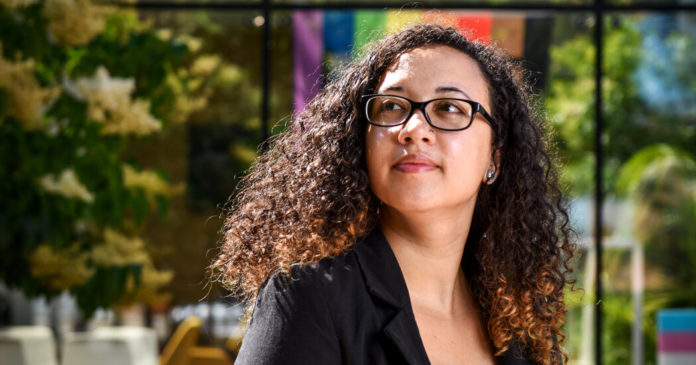
“We see it in research that the more anti-bisexual experiences someone has, the worse their health can be,” said Tania Israel, a psychology professor who studies L.G.B.T.Q. health at the University of California, Santa Barbara.
It’s like being in a ‘double closet.’
Ethan Mereish, a psychologist and associate professor of health studies at American University in Washington, D.C., said that this kind of discrimination from in and beyond the queer community can create “a double closet” that can discourage bisexual people from coming out, in part because they may worry they won’t find a welcoming community.
It can also create a hostile social environment, which in turn can contribute to mental health disorders, said Ilan H. Meyer, a public policy scholar at the Williams Institute at the U.C.L.A. School of Law who researches L.G.B.T.Q. health disparities, and can discourage bisexual people from accessing the community’s resources and support.
Jessie Miller, 27, a graduate student in sociology at the University of Illinois at Chicago who uses she/her or he/him pronouns, came out as bisexual at 14 in a speech at a schoolwide assembly. She said she was never ashamed of her sexuality until her 20s, when both gay and straight friends and family started telling her they didn’t believe she was really attracted to women, and that she was going through a phase.
“It was other people who instilled in me that there was something wrong with me, that I didn’t know who I was,” she said.
Ms. Miller said she has struggled to find a therapist who understands the conflicting emotions around bisexuality and internalized biphobia. “It’s impossible to find the right support,” she said.
If you are bisexual — and especially if you are bisexual and in a relationship with someone of the opposite gender — your sexual identity may not be obvious to the outside world, Dr. Mereish said. This can lead to the exhausting decision of what to do if someone, including a therapist, automatically assumes you are straight. Should you correct them? Or should you stay quiet and risk feeling like you are erasing your own identity? “There’s this stress of having to decide, is this interaction worth me coming out?” Dr. Mereish said. It can be “a psychologically taxing process.”








